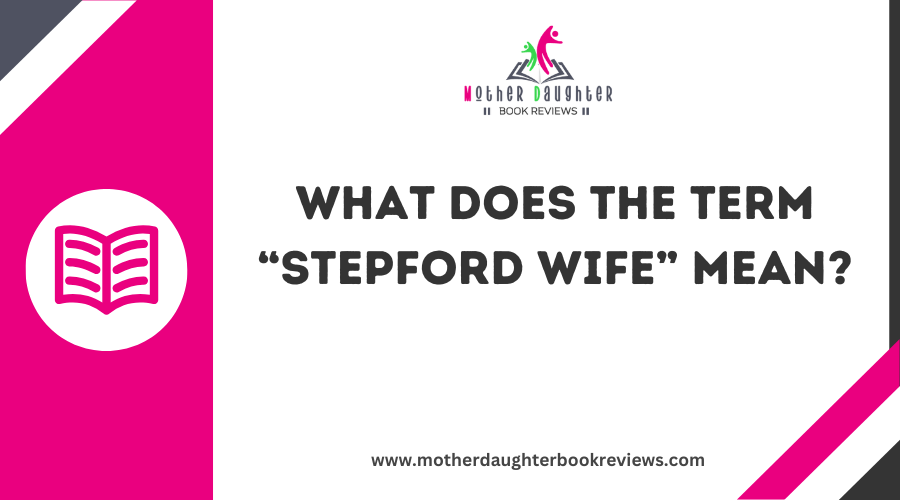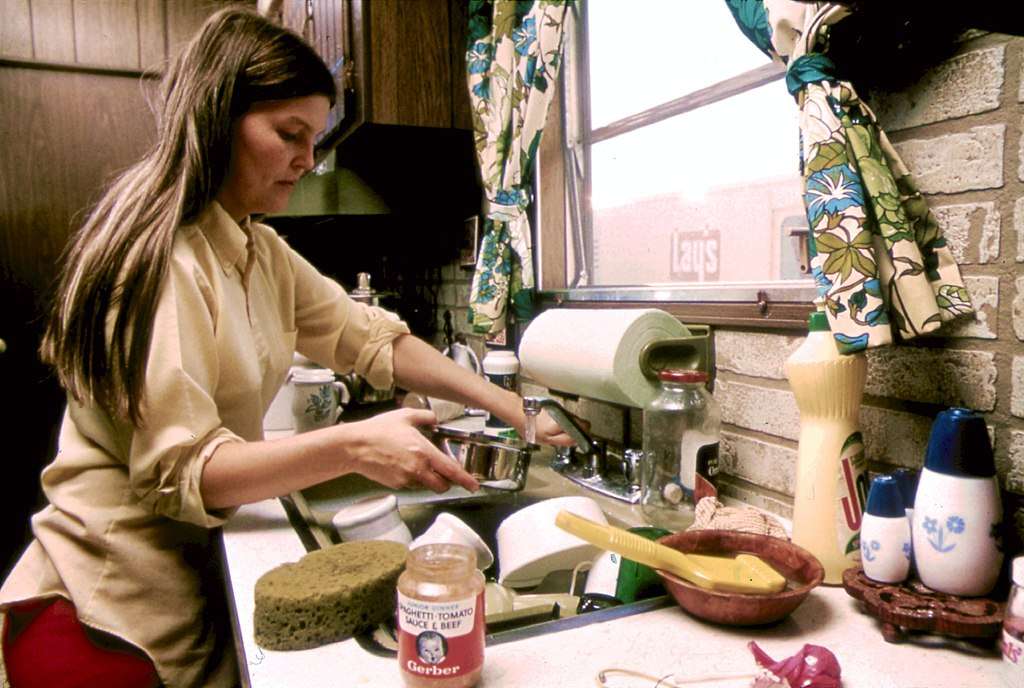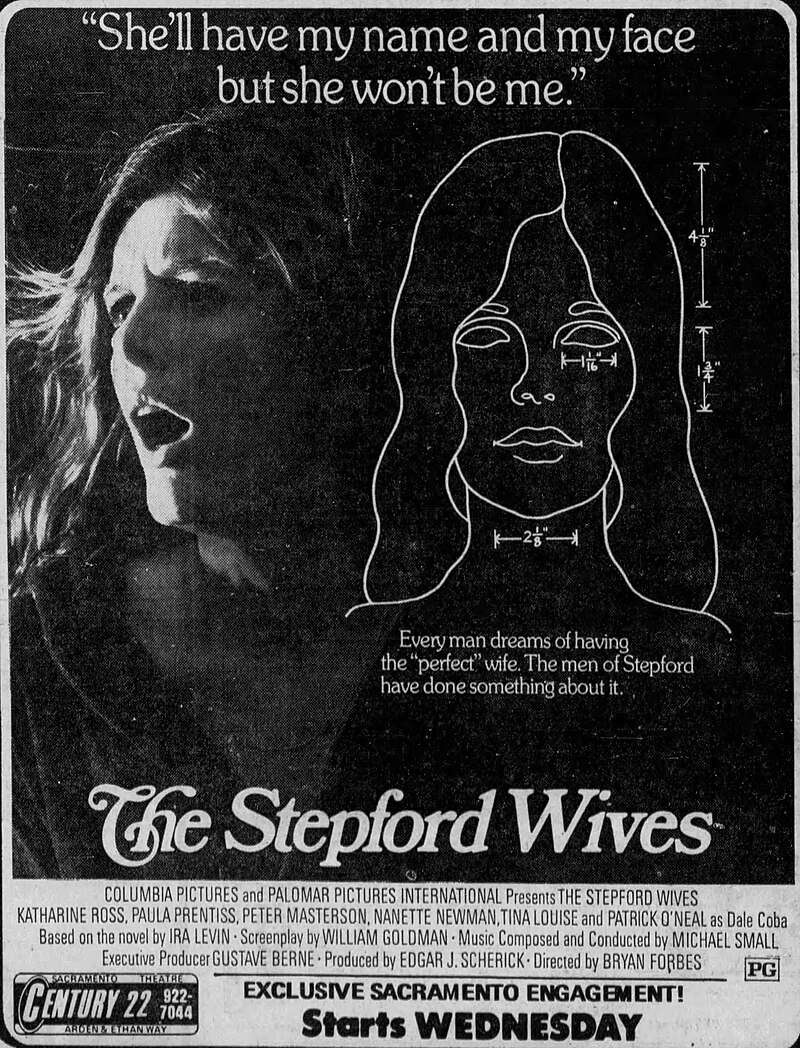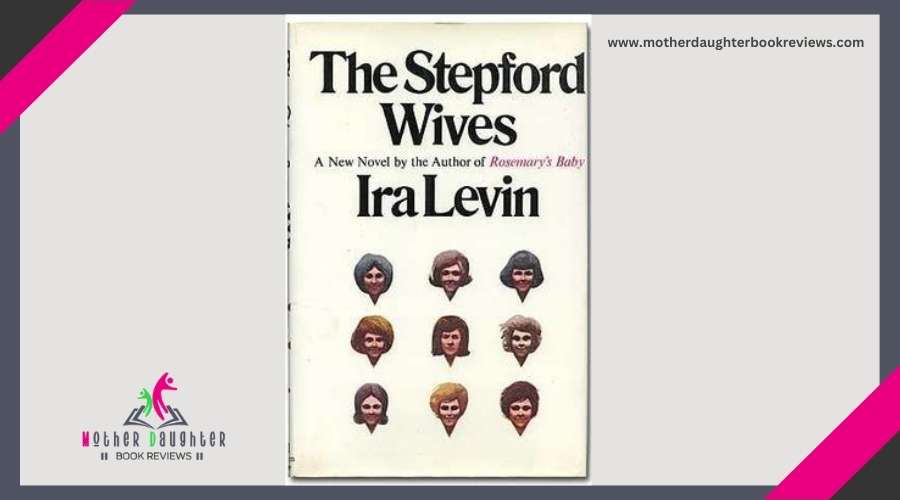What Does the Term “Stepford Wife” Mean?

The term "Stepford wife" refers to a woman usually portrayed as submissive, overly domestic, and conformist. It originates from the 1972 novel The Stepford Wives, which represented wives in a fictional town as robots programmed for obedience and compliance. This trope critiques traditional gender roles and the suppression of women's autonomy.
The term usually describes (often derogatorily) a woman who seems to lack individuality and independent thought, prioritizing serving her husband's needs over her own. If you'd like to learn more about the more profound cultural significance and feminist viewpoints on this term, keep reading.
Definition and Meaning

What exactly does the term "Stepford wife" mean? It refers to a woman portrayed as submissive, overly domestic, and conformist to traditional gender roles. This term originates from the 1972 novel The Stepford Wives where wives in the fictional town of Stepford are revealed to be robots programmed to be obedient and compliant.
A Stepford wife lacks independence, individuality, and critical thinking, prioritizing serving her husband and maintaining a perfect household over her own personal interests or aspirations.
In contemporary usage, calling a woman a “Stepford wife” can imply she conforms too much to traditional or unrealistic expectations of femininity, sometimes to an unnatural or even disturbing degree.
The term is often used derogatorily to criticize women seen as blindly adhering to societal expectations of traditional femininity and domesticity. The concept gained wider recognition after Ira Levin's thriller captured the radical transformation of independent women into robotic homemakers controlled by their husbands.
Origins and Literary Context
The term "Stepford wife" originates from Ira Levin's 1972 satirical thriller novel The Stepford Wives. In the novel, Levin depicts the town of Stepford as a suburban community where the wives have been altered into submissive, domestic robot-like versions of their former selves.
The protagonist, Joanna Eberhart, gradually realizes that the men of Stepford are conspiring to control and subjugate their wives. The 1975 film adaptation further popularized the "Stepford wife" as a cultural trope, serving as a feminist satire that critiques traditional gender roles and men's desire to dominate their wives.
Just like Miss Trunchbull's reign of terror over her students, the men of Stepford used intimidation and manipulation to maintain control over the women in their community.
Cultural Significance and Impact
The term "Stepford wife" has become a widely recognized cultural trope that reflects broader societal concerns about traditional gender roles and the suppression of women's autonomy.
The Stepford Wives’s concept has been under extensive investigation and criticism serving as a symbol of patriarchal oppression and the struggle for women's empowerment. Feminist scholars have analyzed this trope as a powerful metaphor for the marginalization and objectification of women, highlighting the need for more inclusive discussions about gender equality.
The enduring relevance of a "Stepford wife" emphasizes ongoing debates surrounding gender norms, the control of women, and the intersections of technology, gender, and power. Like many classic narratives exploring love's transformative power, The Stepford Wives’s story reveals how passionate connections can inspire characters to challenge and alter their predetermined fates.
Usage and Common Associations
The term "Stepford wife" is commonly used in a derogatory manner to describe a woman who appears overly submissive, domestic, and conformist. It implies that a Stepford wife lacks individuality and independent thought, prioritizing serving her husband's needs and upholding traditional gender roles.
The term "Stepford wife" reflects broader anxieties about the control and homogenization of women's identities, as represented in the original The Stepford Wives novel and films. This cultural shorthand suggests a woman has been stripped of her autonomy and converted into a passive, robotic homemaker. The term critiques societal pressure on women to be ideally attractive, obedient, and devoted to their homes and families.
Feminist Critiques and Perspectives
Feminist scholars have long analyzed the "Stepford wives" trope as a powerful symbol of patriarchal oppression and the systematic suppression of women's autonomy. This concept reflects feminist critiques of the societal expectations and pressures that compel women to conform to traditional gender roles and domestic ideals.
Feminist viewpoints view The Stepford Wives as a representation of the limitations imposed on women's independence and agency within suburban, middle-class environments. The trope has been used to investigate the intersections of gender, technology, and the societal control of women's bodies and minds.
Ultimately, feminist analyses of The Stepford Wives highlight broader debates surrounding gender equality, the autonomy of women, and the societal control of female identity.
Representation in Media and Film

The original novel and 1975 film adaptation introduced the iconic "Stepford wife" to mainstream audiences. However, one cannot overstate the trope's enduring impact on media and popular culture. The term has been widely referenced and parodied across films (two feature-length film adaptations so far), TV shows, and literature, solidifying its status as a powerful cultural symbol.
The 2004 remake further examined the "Stepford wife" concept through the lens of technological control and gender equality, reflecting broader societal anxieties about traditional gender roles and female autonomy. The enduring legacy of the "Stepford wife" in media highlights its ability to encapsulate complex issues surrounding the control of women's bodies and minds.
Societal Implications and Debates
Beyond the representation of "Stepford wives" in media, the societal implications and debates surrounding this concept are far-reaching.
The term "Stepford wife" has become a cultural touchstone, often used to describe women who are obsessively focused on maintaining a perfect domestic image, subservient to their husbands and conformist in nature. These wives are also stripped of their individuality and agency and emblematic of a patriarchal society that seeks to control and oppress women.
The fictional town of Stepford has become a metaphor for the broader societal pressures and expectations placed on women, sparking ongoing debates about gender roles, power dynamics, and the struggle for true equality.




